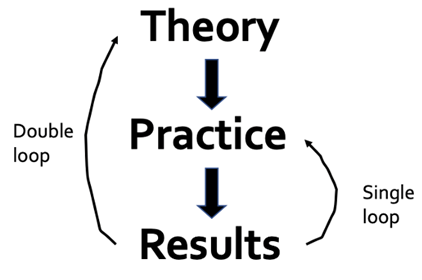580 words (7 minutes reading time) by Lancing Farrell

In a thought-provoking post titled ‘OECD Solutions,’ Colin Weatherby examined decision-making by those suffering from OECD, shedding light on the prevalence of single-loop learning over its more nuanced counterpart, double-loop learning. The implications of this choice, as Weatherby suggests, go beyond the surface, hinting at a deliberate oversight of systemic causes.
Continue reading
